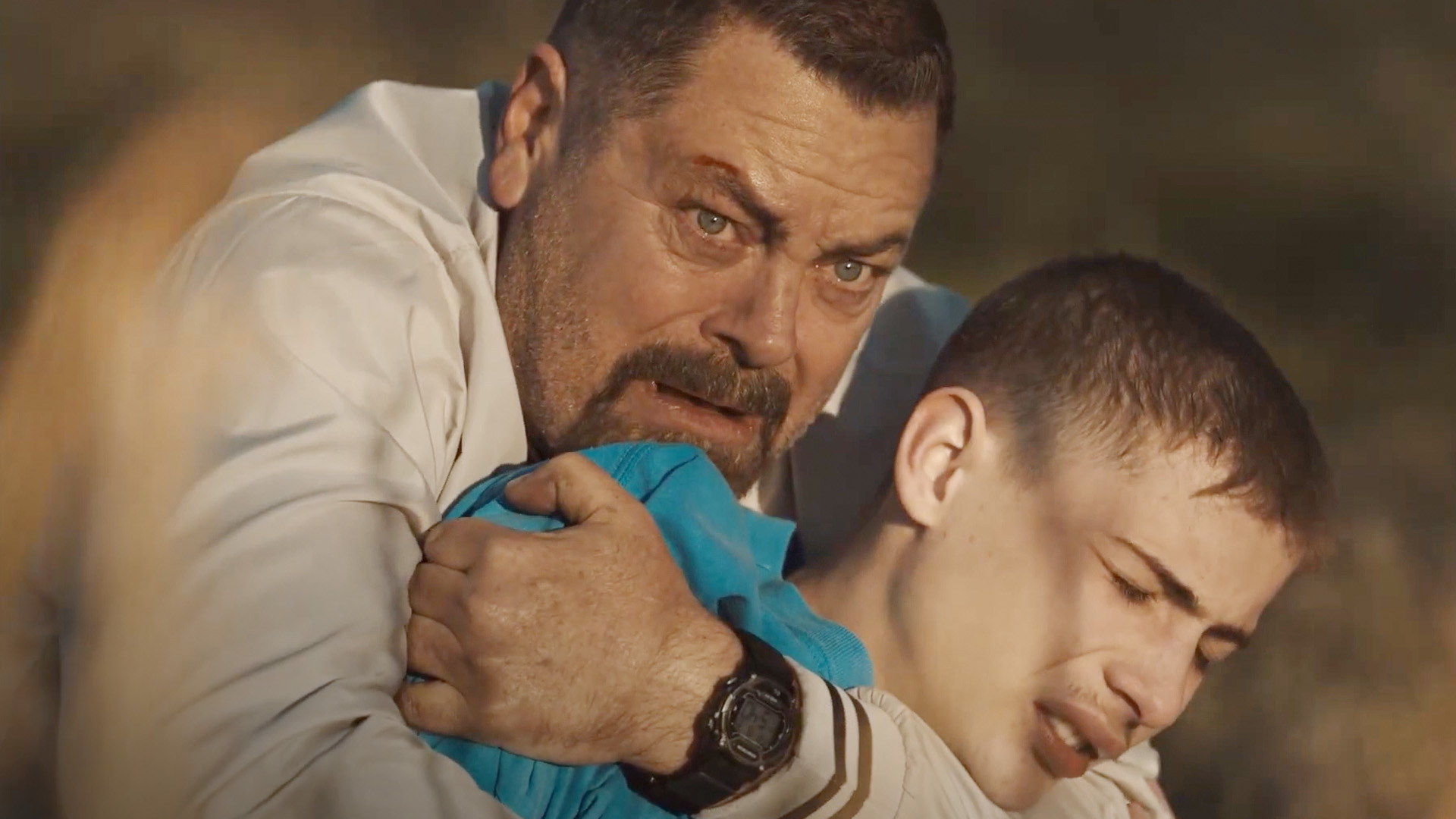
As someone who has spent hours scrolling through Instagram and YouTube watching videos of judges destroying sovereign citizens for their shenanigans, Sovereign is a film I’ve been expecting to be made for some time now. It’s called a ‘movement’, but it’s really just nonsense. It’s as frustratingly illogical as the Flat Earth movement, and requires the same amount of gullibility and desperation on the part of its believers. These folks talk with such authority, with such conviction, though nothing they’re saying is based on any metric of fact. Sovereign citizens are, usually, people who have been dealt a difficult hand in life and need someone to blame. Who better than the United States Government? It surely must be their fault. If only Sovereign, the film, cared as much about the movement it chronicles as it does the complicated dynamics of father and son relationships. If it did, and handled it with the same level of care, we might be talking about one of the best films of the year.

Continuing his mission to subvert those “Ron Swanson” expectations, Nick Offerman stars as Jerry Kane, a devout sovereign citizen who spreads the good word of the movement at seminars in hotel conference rooms and bingo halls all over the rural United States. Meanwhile, his teenage son, Joe (Jacob Tremblay), struggles with just how much of his father’s routine to believe. They live hand-to-mouth with their house being foreclosed on and Jerry seemingly unable to do what’s best for his son, at the cost of his movement. For Jerry, anything that happens to him is the fault of the government, and he seems to delight in his ability to take advantage of people and not pay his debts. In short: Jerry is a deadbeat. Life didn’t work out for him, so now he feels he has permission to do whatever the hell he wants to do.
Now, let’s flip to the other side of this coin. Dennis Quaid stars as John Bouchart, the local police chief, whose son Adam (Thomas Mann), is following in his footsteps as a police officer. John, clearly proud of this, pours everything he has into teaching his son how to be the best police officer he can be, and we get a very good sense of the training police officers undergo in terms of how to deal with citizens, sovereign or otherwise. Of course, these father and son pairs connect in some interesting and devastating ways throughout the film, leading to the ultimate standoff that feels like Hell or High Water meets Rebel Ridge.

What we see in Sovereign is how fathers connect with their sons over violence. For Jerry, it’s about making sure Joe has the tools he needs to defeat the government. For John, it’s about sometimes using violent means to provide peace and safety – but it’s still violence. In short order, we see Jerry and Joe at the firing range with their assault rifle, and John and Adam engaging in hand-to-hand combat training. Fathers usually want their sons to follow in their footsteps, and both of the sons in this film feel destined to do just that. The ending of this film, which I won’t spoil, is so quiet and peaceful, with this underlying undercurrent of sadness since you don’t really know what’s going to happen next. Will the cycle repeat, or will it be broken?
Where the film falters is in its character development. We know nothing about Jerry and Joe outside of their belonging to the sovereign citizen movement. We get no real sense of what drove Jerry to this, which is the most fascinating thing to explore. What makes someone abandon their sense to follow made-up jargon? Sovereign doesn’t really care about the ‘why’ of it all. It’s more interested in creating scenes we all know too well, as when Jerry appears in a courtroom only to be essentially scolded by the judge for his B.S., or when Jerry is pulled over by an officer and recites the sovereign citizen playbook. Yes, these might be entertaining to someone who has never watched a YouTube video, but it’s less interesting to those of us who care more about figuring out the path that brings a person to the movement. We also learn very little about John and Adam other than their professions. I don’t know why director Christian Swegal was so uninterested in his own characters.
At the heart of the film are several central performances that carry more weight than I feel this film deserves, as is. Offerman is intense, electric, and never makes you doubt for a second that he believes what he believes. Quaid, in a comfortable role well suited to his screen presence, equals that intensity, but does offer an undercurrent of softness that occasionally takes you by surprise. Martha Plimpton and Nancy Travis are breaths of fresh air, and Thomas Mann does the best he can do with an underwritten role. Jacob Tremblay is the question mark here. He has grown into a striking teenager, but the understated nature of his performance borders on ‘checked out’. I guess I’ll just give him the benefit of the doubt.

As frustrating as it is, at times, Sovereign does provide an interesting analysis of fathers, sons, and the dynamics that both bind and destroy them. On that level, it’s a success. Unfortunately, the ‘sovereign movement’ part of the film feels like it was merely a gimmick. By choosing to not explore the character’s relationship to the movement, it cops out and takes the easy road. Dropping us into a person’s situation is fine, but when you’re dealing with characters undergoing such high emotional stakes, we need more than that for full investment. There’s a lot to chew on with this film, but you’ll probably want to spit it out when you’re done.
Rating: **1/2/***** (currently available on VOD via Amazon Prime and Apple TV+)




